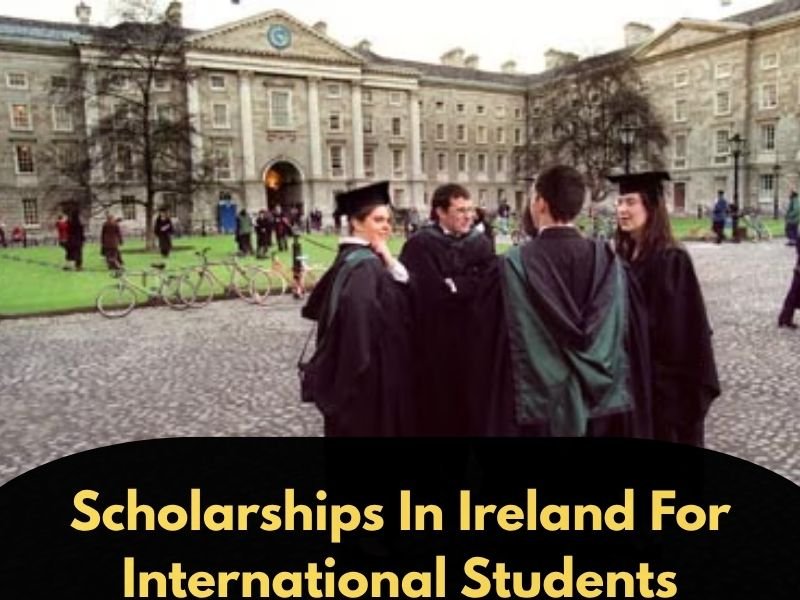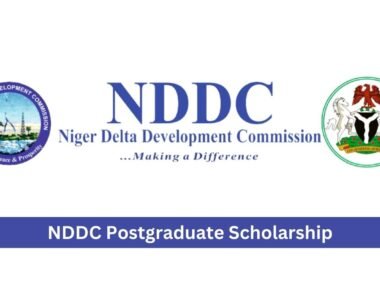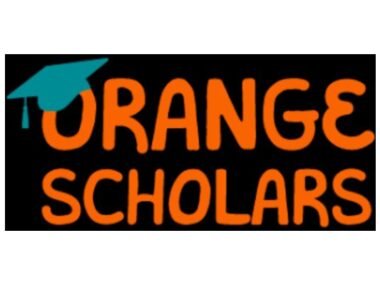Ireland, known for its rich cultural heritage, world-class education system, and welcoming environment, has become a top destination for international students seeking higher education. With prestigious universities such as Trinity College Dublin, University College Dublin (UCD), and the National University of Ireland, Galway, the country offers cutting-edge programs in fields ranging from technology to the humanities. However, the cost of studying abroad can be a significant barrier for many.
To address this, Ireland provides a wide array of scholarships for international students, making education more accessible. This comprehensive 3,000-word article examines the various scholarships available in Ireland for international students, including their eligibility criteria, application processes, and tips for securing funding. The information is current as of 2025, drawing from reliable sources such as the Higher Education Authority and university websites.
Ireland’s Education System
Ireland’s education system is globally recognized for its quality and innovation. The country ranks among the top 20 globally for higher education, with institutions like Trinity College Dublin and UCD consistently appearing in international rankings. Ireland’s emphasis on research, technology, and global connectivity makes it an attractive destination for students pursuing undergraduate, postgraduate, or doctoral degrees.
Additionally, Ireland’s post-study work opportunities, vibrant culture, and English-speaking environment appeal to students from non-EU/EEA countries. However, tuition fees for international students can range from €10,000 to €40,000 per year, depending on the program and institution, with living costs adding €7,000–€12,000 annually. Scholarships in Ireland for international students help alleviate these expenses, enabling talented students to pursue their academic goals.
Types of Scholarships in Ireland for International Students
Scholarships in Ireland for international students are offered through government initiatives, higher education institutions, non-governmental organizations (NGOs), and external bodies. These scholarships vary in scope, covering tuition fees, living expenses, research costs, or a combination of these. Below, we categorize the main types of scholarships available and provide detailed insights into their benefits and requirements.
1. Government-Funded Scholarships
The Irish government is committed to fostering global talent through fully and partially funded scholarships. These programs aim to attract high-caliber international students and strengthen Ireland’s position as a global education hub.
Government of Ireland International Education Scholarship (GOI-IES)
The Government of Ireland International Education Scholarship (GOI-IES) is one of the most prestigious scholarships in Ireland for international students. Managed by the Higher Education Authority (HEA), it awards 60 scholarships annually for one year of full-time study at National Framework of Qualifications (NFQ) levels 9 or 10 (master’s, postgraduate diploma, or PhD). The scholarship includes a €10,000 stipend for living expenses and a full tuition fee waiver from the host institution. Eligible applicants must be from non-EU/EEA countries, Switzerland, or the UK and hold a conditional or final offer from an eligible Irish higher education institution (HEI).
Russian and Belarusian nationals are ineligible due to geopolitical restrictions. Applications for the 2025/2026 cycle closed on March 5, 2025, with results announced in June or July. Candidates must demonstrate a strong rationale for studying in Ireland and alignment with their long-term goals. The application process involves submitting an online form via the HEA portal, including academic transcripts, a study offer, and references.
Government of Ireland Postgraduate Scholarship Programme
This program, funded by the Department of Further and Higher Education, Research, Innovation, and Science and managed by the Irish Research Council, supports postgraduate research across all disciplines. It offers up to €31,000 per year, including a €22,000 stipend, a contribution to non-EU fees (up to €5,750), and research expenses (€3,250). Applicants must hold a first-class or upper second-class honors bachelor’s degree or equivalent. The program is highly competitive, with an 18% success rate over the past five years. It is open to non-EU/EEA students, with applications submitted through an online portal. The 2025 cycle deadlines typically fall in January or February.
Irish Aid Fellowships
Irish Aid Fellowships support students from developing countries in fields like agriculture, health, education, human rights, and sustainable development. These fully funded scholarships cover tuition, living expenses, and travel costs for postgraduate studies. Eligibility focuses on candidates from partner countries who demonstrate leadership potential and a commitment to contributing to their home country’s development. Application details are available through Irish Aid’s official website, with deadlines varying by region.
2. University-Funded Scholarships
Irish universities offer a range of scholarships in Ireland for international students, often based on academic merit, region of origin, or specific fields of study. These scholarships are designed to attract diverse, high-achieving students and promote inclusivity.
Trinity College Dublin
Trinity College Dublin, ranked first nationally, provides several scholarships for international students. The Global Excellence Undergraduate Scholarships offer €5,000 to non-EU students enrolled in full-time undergraduate programs (excluding Medicine, Dentistry, and Acting). The application deadline for 2025 was not specified, but awards are merit-based. For postgraduate students, the Global Excellence Postgraduate Scholarships provide up to €5,000, with deadlines typically in March. Trinity also offers region-specific scholarships, such as those for students from Southeast Asia or India, ranging from €5,700 to €11,400.
University College Dublin (UCD)
UCD, Ireland’s largest university, offers the Global Excellence Scholarship, covering 50% to 100% of tuition fees for non-EU students pursuing undergraduate, graduate, or PhD programs. The application deadline for 2025 was March 31, 2024, for undergraduates. The UCD Ad Astra Academic Scholarship supports high-achieving students with €3,000 and additional academic opportunities. UCD also partners with the GOI-IES program, enhancing funding options for postgraduate students.
National University of Ireland Galway
NUI Galway provides merit-based scholarships for international students, including partial tuition fee waivers of €1,000 to 50% for undergraduates and the Hardiman PhD Scholarships for postgraduate research. The Hardiman Scholarships support five research areas, offering full funding to enhance policy, society, and culture. The Southeast Asian Student Scholarship, valued at €2,000–€5,700, targets students from specific regions. Deadlines for 2025 applications were typically May 31, 2022, for undergraduates.
University College Cork (UCC)
UCC’s SEFS International Undergraduate Scholarship supports students in Science, Engineering, and Food Science, with applications open for 2024/2025. The Excellence Scholarships for PhD students cover EU fees, with non-EU students responsible for the balance. The President’s Scholarships offer €2,000–€5,000 for outstanding international students. Deadlines vary, with some open until May 1.
National College of Ireland (NCI)
NCI offers scholarships for both undergraduate and postgraduate students. The Undergraduate Academic Scholarship provides €2,000, while the Early Childhood Education and Care (ECEC) Scholarship offers €4,000 per year. Postgraduate scholarships include the Academic Merit Scholarship (€2,000–€5,000) and specialized awards for MSc in Entrepreneurship and Artificial Intelligence for Business (up to €7,000 from January 2025). The Higher Diploma in Science in Computing provides €4,000. Applications are assessed automatically based on academic performance.
Maynooth University
Maynooth University offers partially funded scholarships for master’s students, valued at €2,000. The John Thompson Scholarship, offered by Dublin City University Business School, provides a full tuition fee waiver for a Master’s in Digital Marketing. Deadlines vary, typically in March or April.
3. Non-Governmental and External Scholarships
Non-governmental organizations and external bodies provide additional scholarships in Ireland for international students, often targeting specific fields or demographics.
Fulbright Scholarships
The Fulbright Commission offers six categories of scholarships for students from countries like Brazil, China, India, Japan, Indonesia, Malaysia, and the USA. These scholarships cover tuition, living expenses, and travel for postgraduate studies in various disciplines. Application deadlines and eligibility criteria vary by country, with details available on the Fulbright Ireland website.
Mary Robinson Climate Justice Award
Named after former Irish President Mary Robinson, this award supports students studying climate change and sustainability. It provides financial aid and access to research opportunities, with applications open to non-EU students pursuing relevant postgraduate programs.
Other External Scholarships
Organizations like the United Nations, Soros Foundation, and World Health Organization offer scholarships for international students in Ireland. The China Scholarship Council (CSC) and King Abdullah Scholarship Scheme support students from China and Saudi Arabia, respectively, with full or partial funding for PhD programs. The Generation Google Scholarship for women in computer science provides €5,000 for undergraduate students.
4. Sports and Specialized Scholarships
Ireland recognizes the importance of holistic development, offering scholarships for athletes and students in niche fields. Sports Scholarships at institutions like UCD and NCI provide €2,000–€3,000, along with access to training facilities and coaching. The UCD Ad Astra Elite Sports Scholars program supports athletes in sports like athletics, boxing, and rugby, with 60 scholars currently enrolled. The UCD Ad Astra Performing Arts Scholarship offers €3,000 for classical musicians and actors. Deadlines for 2025 were January 31. The Intel Women in Technology Scholarship provides €1,200–€3,440 for female students in STEM fields.
Eligibility and Application Process
General Eligibility Criteria
Eligibility for scholarships in Ireland for international students varies by program but typically includes:
-
Non-EU/EEA Status: Most scholarships target students from outside the EU/EEA, Switzerland, or the UK.
-
Academic Excellence: A first-class or upper second-class honors bachelor’s degree (or equivalent) is often required for postgraduate scholarships. Undergraduate scholarships may rely on high school grades or entrance exams.
-
Offer of Admission: Applicants must hold a conditional or final offer from an eligible Irish HEI for most government and university scholarships.
-
English Proficiency: Proof of English language attainment (e.g., IELTS or TOEFL) is required, though some scholarships waive this requirement.
-
Field of Study: Scholarships may be open to all disciplines or restricted to specific fields like STEM, humanities, or sustainable development.
-
Additional Criteria: Leadership, community involvement, or alignment with institutional goals may be considered. For example, GOI-IES requires a rationale for studying in Ireland.
Application Process
The application process for scholarships in Ireland for international students varies by scholarship type:
-
Government Scholarships: Apply through the HEA’s online portal (GOI-IES) or the Irish Research Council’s portal (Postgraduate Scholarship Programme). Required documents include academic transcripts, a study offer, references, and a personal statement. Deadlines for 2025 were March 5 for GOI-IES and January/February for Postgraduate Scholarships.
-
University Scholarships: Some scholarships (e.g., UCD Global Excellence, NCI Academic Merit) are assessed automatically upon admission, while others require separate applications through university portals. Deadlines range from January to May.
-
External Scholarships: Apply directly to the sponsoring organization (e.g., Fulbright, CSC). Requirements may include essays, interviews, or proof of financial need.
-
Tips for Success:
-
Start Early: Research scholarships 6–12 months before the application deadline.
-
Follow Guidelines: Adhere to word counts (typically 500 words or less for essays) and submission requirements to avoid disqualification.
-
Tailor Applications: Highlight academic achievements, leadership, and alignment with the scholarship’s goals.
-
Seek Assistance: Contact university’s international offices or organizations like SI-Ireland for guidance.
-
Maximizing Scholarship Opportunities
To secure scholarships in Ireland for international students, consider the following strategies:
-
Apply for Multiple Scholarships: Since many scholarships are competitive, apply to several to increase your chances. Note that some scholarships (e.g., GOI-IES) cannot be combined with others.
-
Complete Financial Aid Forms: Submit accurate financial information for need-based scholarships, such as those offered by Irish Aid or NCI.
-
Leverage University Resources: Many universities provide dedicated scholarship advisors. For example, UCD’s GOI-IES webpage offers application tips.
-
Explore External Funding: Organizations like AECC and SI-Ireland offer free assistance for finding and applying to scholarships.
-
Prepare for Costs Beyond Scholarships: The GOI-IES €10,000 stipend may not cover all living expenses, so plan for additional funding or part-time work (up to 20 hours per week for non-EU students).
Challenges and Considerations
While scholarships in Ireland for international students are abundant, there are challenges to navigate:
-
Competitive Nature: With success rates as low as 18% for some programs, strong applications are essential.
-
Limited Duration: Many scholarships, like GOI-IES, cover only one year, requiring students to secure additional funding for multi-year programs.
-
Non-EU Fee Gaps: Some scholarships cover only EU fees, leaving non-EU students to pay the balance.
-
Application Complexity: Multiple documents and deadlines can be daunting. Using resources like the HEA’s Call Document or university scholarship pages simplifies the process.
Recent Trends and Updates (2020–2025)
Ireland’s scholarship landscape has evolved significantly in recent years. The GOI-IES program, launched under the 2010–2015 International Education Strategy and extended through the “Irish Educated, Globally Connected” framework (2016–2025), reflects Ireland’s commitment to global education. In 2025, 60 GOI-IES scholarships were awarded, maintaining the program’s prestige. Universities like NCI and UCD have expanded their scholarship portfolios, with new awards for fields like artificial intelligence and entrepreneurship. The test-optional trend has also influenced admissions, with some scholarships relying solely on academic records and essays rather than standardized tests like IELTS.
Conclusion
Scholarships in Ireland for international students provide a gateway to affordable, high-quality education in a country renowned for its academic excellence and cultural richness. From government-funded programs like GOI-IES and the Postgraduate Scholarship Programme to university-specific awards at Trinity, UCD, and NCI, students have diverse options to fund their studies. By understanding eligibility criteria, preparing strong applications, and exploring multiple funding sources, international students can make their Irish education dreams a reality.
For further details, visit the HEA’s GOI-IES portal (goi-ies@hea.ie), university scholarship pages, or consult with organizations like SI-Ireland or AECC. With careful planning and dedication, scholarships in Ireland for international students can pave the way for academic and professional success in 2025 and beyond.







